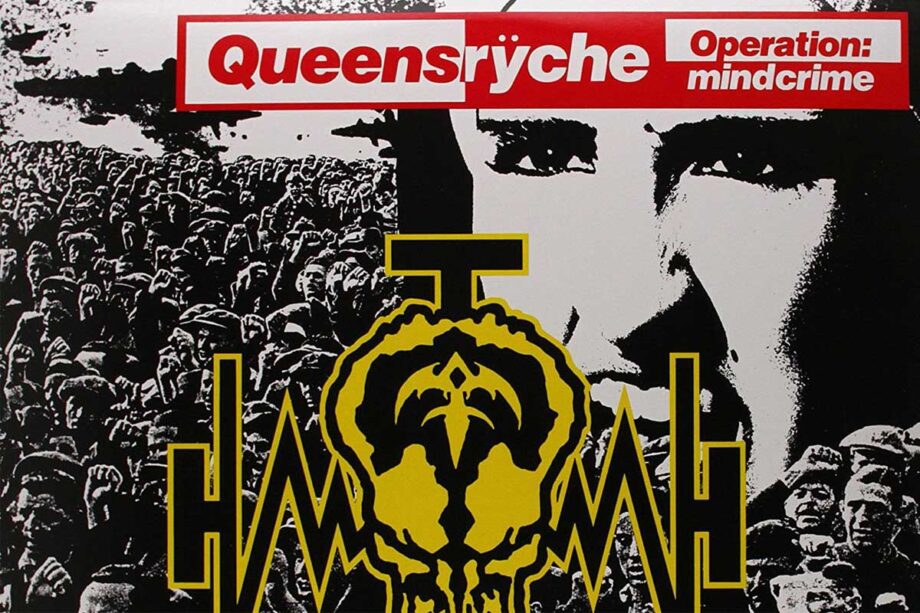Some albums are just a collection of songs. Others tell a story. But few concept albums in metal are as detailed and impactful as ‘Operation: Mindcrime’ by Queensrÿche. Released on May 3, 1988, this album wasn’t just a turning point for the band — it became one of the most respected concept albums in metal history.
What Is ‘Operation: Mindcrime’ About?
Unlike regular albums that have separate songs with different themes, ‘Operation: Mindcrime’ is a rock opera with a continuous story. It follows Nikki, a heroin addict who becomes part of a secret revolutionary group led by a mysterious leader called Dr. X. Using brainwashing and drug addiction to control him, Dr. X turns Nikki into an assassin who kills political and religious leaders.
As Nikki rises in the ranks, he meets Sister Mary, a former prostitute-turned-nun. She helps him start questioning the group’s true motives. Dr. X sees her as a threat and orders Nikki to kill her. Nikki refuses, but later finds her dead, unsure if he was responsible. He spirals into madness, is arrested, and ends up in a mental hospital, unable to remember everything he did. The album starts and ends with Nikki in this hospital, making the story come full circle.
How the Album Was Made

The album took almost two years to complete, with work starting in spring 1987. Unlike many metal albums of that time, it was recorded using digital technology. It was rare in the 1980s. The band used a Sony 24-track digital tape machine to record, mix, and master the album.
Queensrÿche had to be convinced to take on such an ambitious project. The idea came from Geoff Tate, who was inspired by his experiences in Montreal. He met members of a militant Quebec separatist movement there. Some of them were involved in bombings and terrorism. He also based parts of the story on friends who had struggled with heavy drug use.
Tate had to persuade the rest of the band one by one, and once guitarist Chris DeGarmo got on board, the rest of the band followed.
Success and Impact

‘Operation: Mindcrime’ reached No. 50 on the Billboard 200 when it was first released. It became Queensrÿche’s breakthrough album, with two of its songs, ‘Eyes of a Stranger’ and ‘I Don’t Believe in Love,’ becoming their first charting hits in the U.S.
The album was certified gold in 1989 and platinum in 1991 by the RIAA. It also ranked No. 34 on Kerrang!’s ‘100 Greatest Heavy Metal Albums of All Time’ in 1989.
The song ‘I Don’t Believe in Love’ was nominated for a Grammy Award for Best Metal Performance in 1990. Over the years, many metal publications and websites recognized the album’s importance:
- Classic Rock (2016) named it one of the “10 Essential Progressive Metal Albums.”
- Loudwire (2017) ranked it the best heavy metal album of 1988.
- Rolling Stone (2017) placed it at No. 67 on the “100 Greatest Metal Albums of All Time.”
- LA Weekly (2011) ranked it No. 14 on their “Top 20 Hair Metal Albums of All Time.”
The album influenced many bands, including Avenged Sevenfold and The Dillinger Escape Plan’s Ben Weinman.
Live Performances and Re-Releases
Queensrÿche played the album in full during their 1990 Empire tour, using video screens, special effects, and live acting. Pamela Moore, who provided vocals for Sister Mary, performed with them on stage. A live album, ‘Operation: Livecrime,‘ captured one of these shows.
The album was re-released twice:
- 2003 – A remastered version with two bonus tracks.
- 2006 – A deluxe box set with the live CD of the 1990 Hammersmith Odeon performance and a bonus DVD featuring the 1989 Video: Mindcrime.
Queensrÿche also made a sequel, ‘Operation: Mindcrime II,’ in 2006, with Ronnie James Dio playing the role of Dr. X. The band toured with a stage show that included actors, props, and video screens. This tour was later released on the 2007 DVD ‘Mindcrime at the Moore,’ which clearly showed what really happened to Sister Mary.
Why ‘Operation: Mindcrime’ Is One of Metal’s Best Concept Albums

Many concept albums exist in metal, but few have achieved what ‘Operation: Mindcrime’ did. It combines:
- A detailed storyline that stays consistent from start to finish.
- Strong political and social themes, including corruption, addiction, and manipulation.
- A high level of musicianship, with complex song structures and powerful vocals.
- Lasting impact, with continued recognition from metal fans and critics.
‘Operation: Mindcrime’ remains one of metal’s most influential concept albums even 37 years after its release.





